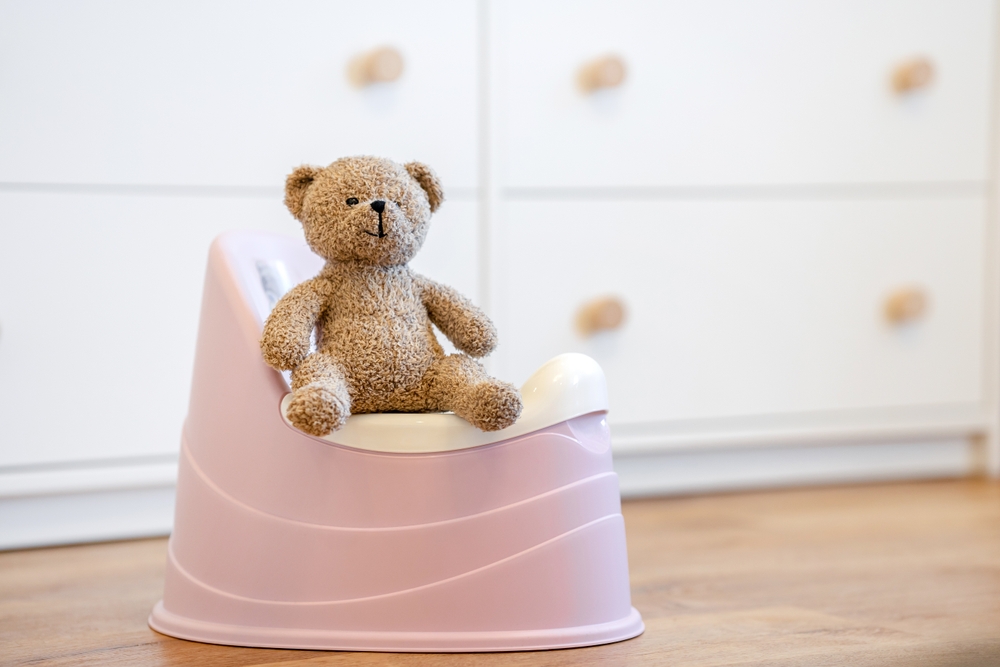
Potty training your child with autism is a journey that takes patience, consistency, and a little creativity! Every child is unique, so finding the right approach for your little one is key. The goal is to make the bathroom a friendly, welcoming place and keep the whole process calm and positive.
Here’s some tips for getting started:
- Make the Bathroom a Familiar Space: Create a comfortable, cozy environment in the bathroom that your child feels safe in.
- Keep Things Calm and Steady: Set realistic expectations and celebrate small victories. Progress might be slow, but that’s okay!
- Encourage with Positivity: Offer lots of praise and rewards for every step forward, no matter how small.
Check out these strategies below for some fun, sensory-friendly ways to make potty training more enjoyable for your child. Remember, every child is different, so feel free to tweak these ideas to fit your little one’s needs!
The ABCs of Habit Training
When it comes to potty training, consistency is your best friend! A predictable routine helps your child feel more confident and less anxious about the process. With a clear roadmap, potty training doesn’t have to be overwhelming for your little one.
Here are a few tips, inspired by our autism therapy in Edison and our other clinic locations. Hopefully these can help make potty training easier!
- Create a Visual Schedule: Align the bathroom time with your child’s natural rhythms to help them understand when it’s time to go.
- Stay Hydrated: Encourage your child to drink fluids before scheduled bathroom times, so they get into a consistent routine.
- Break It Down: Explain each potty step in simple terms. Focus on one small part at a time until they’ve mastered it.
- Use Timers: Set a timer or countdown to make transitions predictable and establish a routine.
- Bring Comfort: Let your child bring along a favorite toy or object to help them feel more relaxed and familiar in the bathroom.
- Celebrate the Wins: Praise your child for their effort every time, and celebrate the small victories along the way!
Understanding Your Child’s Sensory & Functional Needs
For many children with autism, bathroom anxiety or frustration can be triggered by sensory overload from:
- Strong smells
- Splashing sink water
- Loud sounds like fans or hand drying units
By knowing your child’s sensory and functional needs, you can make potty training more comfortable and less stressful. Here are some common sensory triggers to watch out for and tips to help:
- Loud Toilet Sounds: The flushing can be a big surprise! Try to prepare your child by practicing at home or using ear protection.
- Splashing Sink Water: The splashing sound or even getting splashed may be unsettling. Teach your child to use the faucet gently, or let them practice in a quieter setting.
- Loud Hand Dryers: If air dryers are too loud, bring soft towels or consider using a manual towel dispenser.
- Strong Soap Fragrances: Strong smells can be overwhelming. Opt for fragrance-free soap or hand sanitizer.
When using public restrooms, it’s a good idea to bring along some comfort items, such as:
- Soft Toilet Paper: If the rough texture of standard toilet paper bothers your child, pack some softer options or wet wipes.
- Sound-Canceling Headphones: These are great for blocking out loud noises like automatic flushes or hand dryers.
- Odorless Soap: If strong scents are a trigger, use unscented soap to reduce sensory overload.
By paying attention to these small details, you can help your child feel more comfortable and make potty training a smoother, more enjoyable experience!
Create a Positive, Child-Led Potty Training Plan with Our Caring Team!
At Helping Hands Family, we know that every child is unique, especially when it comes to learning new skills like potty training. That’s why our autism behavioral services in Montgomery County (and our other clinics) focus on personalized habit training that’s personalized to your child’s needs. We work with you to develop a potty training plan that fits your child’s learning style and therapy goals, making the process smoother and more effective.
Parent and caregiver training is a big part of our approach too! We empower you with the tools and knowledge to support your child’s growth at home, making sure you feel confident every step of the way.
Looking for more autism resources or clinical support near you? Our ABA providers offer clinical and in-home support, plus guidance on autism assessments, eligibility, and other services. We’re here to help your child thrive! Request a consultation today and let’s get started.
